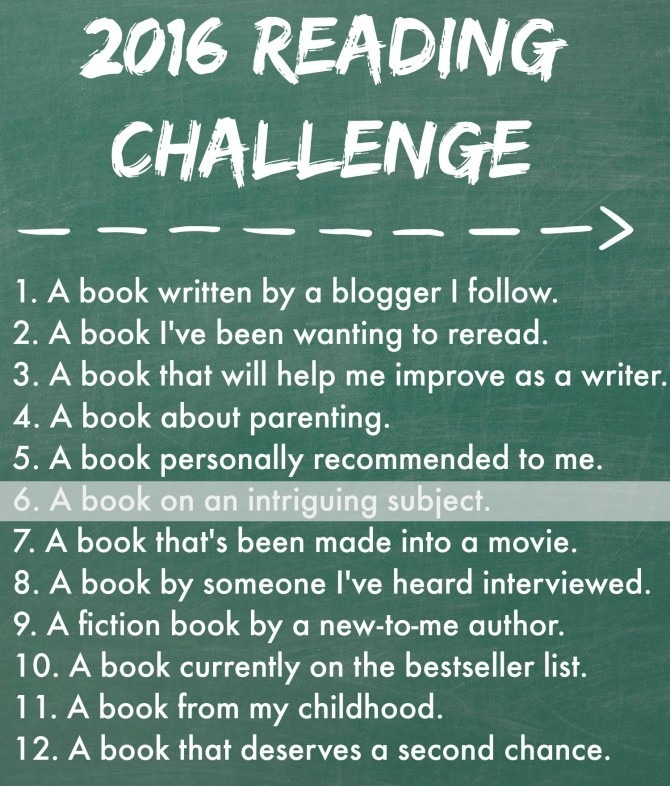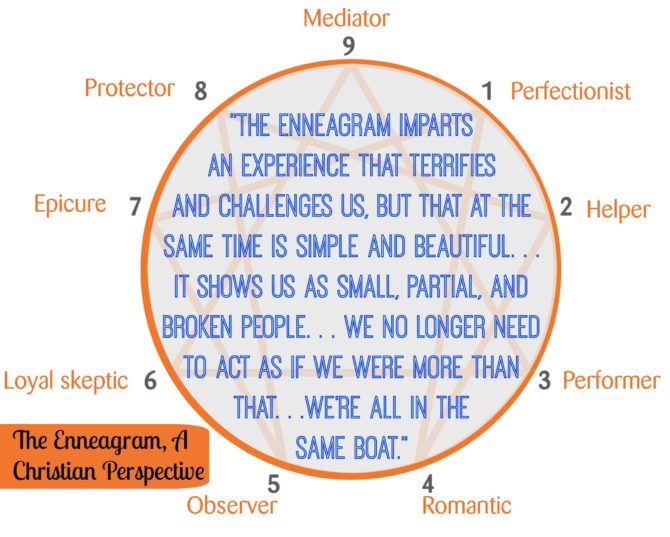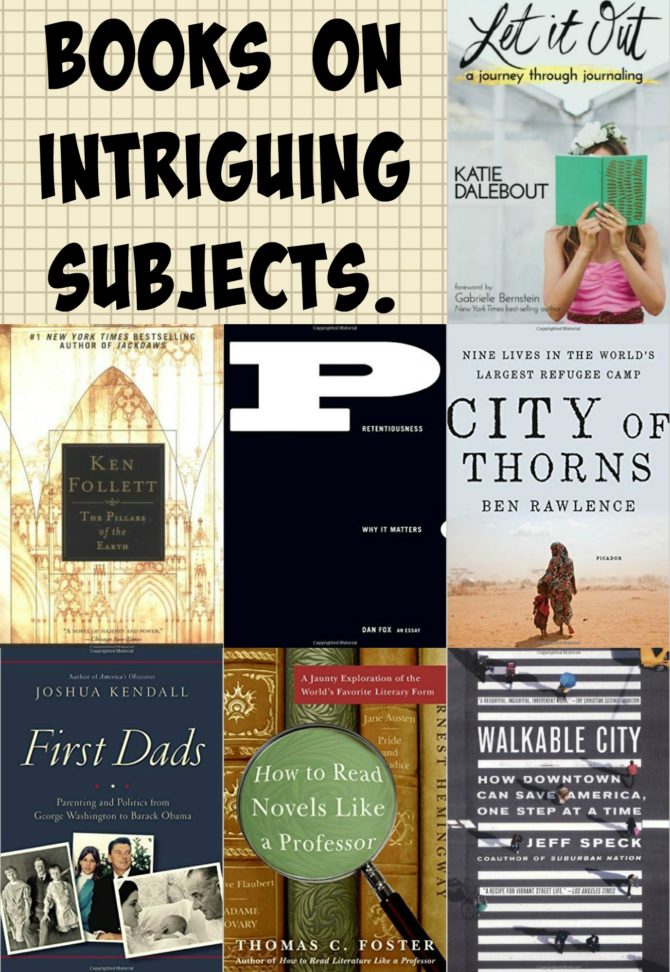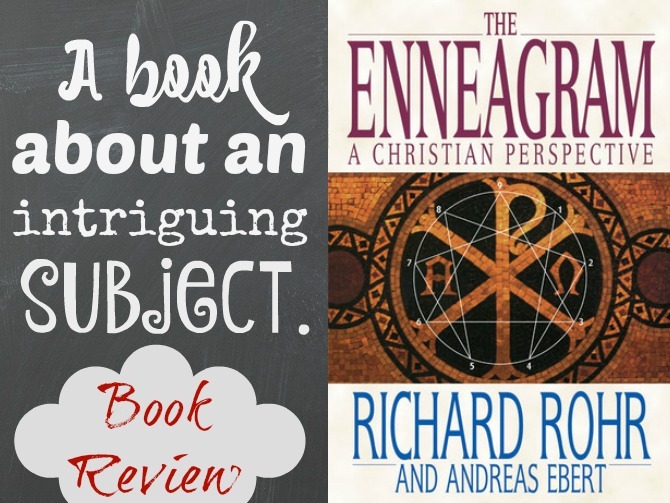Throughout my teens and early twenties, my reading fell into two distinct categories: academic, and light fiction. After long hours spent hovered over textbooks, I wanted my reading-for-pleasure to be as pleasurable as possible, and that usually led me to pick up quick legal thrillers and cozy mysteries, with the occasional biography or Christian Living book thrown in.
Now that my school years are a distant memory, I am exponentially more likely to read from a broader range of genres, including books that I might once have considered too educational to read “just for fun.” These days I read a healthy balance of fiction and nonfiction titles, and while I still have my favorite genres, my expanded tastes have opened my eyes to many fascinating topics, stories, and ideas.

I’ve noticed that I do still tend to play it safe with my nonfiction selections: I read quite a few memoirs and self-help books, but not a lot on new-to-me subjects. This recognition led me to include “a book on an intriguing subject” as part of my 2016 Reading Challenge. And to fulfill this category, I selected The Enneagram: A Christian Perspective—a book that I purchased for last year’s reading challenge but never got around to reading!
I can’t quite get enough of personality models. Myers-Briggs is my first love, but over the last few years I’ve explored some other models as well. I’ve been particularly intrigued by the Enneagram, with its rich history and potential for being used in self-improvement and development, as opposed to simply defining individuals’ innate nature. While I’ve read quite a bit online, I wanted to take a deeper dive into the Enneagram, and this Christian-based book seemed like the perfect fit.
Richard Rohr and Andreas Ebert begin with an overview of the Enneagram, delving into its pre-Christian roots as well as its incorporation of spiritual and distinctly Christian ideologies. They explain that “the Enneagram has emerged as a tool that is forcing many of us to brutal and converting honesty about good and evil and flaws that we hide from ourselves and therefore hide from God.” They also introduce the intricacies of the model, which are further explored in the book’s final sections.
A majority of the book is dedicated to in-depth analyses of the nine types. There is a chapter dedicated to each type, in which the authors give an overview of the type before delving into the type’s symbols, patron saints, and examples. The “Christian Perspective” component comes into play when they describe the root sin of each type and offer suggestions for maturation and redemption. I appreciated their premise: that every individual is predisposed to certain habits and hang-ups, and that God offers a unique form of grace for each of us.
This book has given me a much deeper appreciation for the subject of the Enneagram and has me wanting to learn more. I do wish that I had begun with a more introductory book, as this one is quite technical and assumes a previous familiarity with the model. Still, the authors succeeded in convincing me of the the distinctly Christian applications of the Enneagram, and this book has predisposed me to view the model through a faith sense in the future.
My Rating: 4 stars.
Fun Fact: This was the first physical (print) book I’ve read all year! I’ve read 50 books so far in 2016, but all the others have been either eBooks or audiobooks.

Other Books I Considered For This Category
Let It Out: A Journey Through Journaling, by Katie Dalebout: As a loyal listener to the author’s podcast, I’m familiar with Katie’s story of using journaling to overcome her eating disorder. I’ve already reaped so many benefits from my own journaling practice, and would like to incorporate some of this book’s suggested prompts as well.
The Pillars of the Earth, by Ken Follett: This bestselling book tells the story of a twelfth-century monk who sets out to build the world’s greatest Gothic cathedral. This historical novel may be fiction, but it seems like the ideal format for learning about a period of time I know little about.
Pretentiousness: Why It Matters, by Dan Fox: We tend to think of “pretentious” as a derogatory term, so I’m intrigued by this author’s premise that pretentiousness is an essential ingredient for the furthering of art and culture.
How to Read Novels Like a Professor: A Jaunty Exploration of the World’s Favorite Literary Form, by Thomas C. Foster: There are few things I love more than analyzing a piece of literature. This book would help me to become even better at my craft. I wish I’d had a chance to read this one before teaching Jr. High English.
First Dads: Parenting and Politics from George Washington to Barack Obama, by Joshua Kendall: It’s always interesting to look at the personal lives of great historical figures. I got this book for my dad as a Father’s Day gift, and I was tempted to keep it for myself. (I didn’t, and am eager to hear his thoughts on the book.)
City of Thorns: Nine Lives in the World’s Largest Refugee Camp, by Ben Rawlence: My mom has spent some time volunteering in the slums of Nairobi, Kenya, so I’m already familiar with this heartbreaking topic, but would like to learn more.
Walkable City: How Downtown Can Save America, One Step at a Time, by Jeff Speck: A book about urban planning and architecture lies well beyond my usual spectrum of nonfiction reading, but I’ve heard such great things about this book that I’m willing to dip into very foreign reading territory.

What are some topics that you’d like to explore through reading? Have you read any of the books on my TBR list? I’d love to know what you thought!

[…] have expanded to include a much broader range of books. I’m reading more nonfiction now (as I mentioned last month), and my discovery of book blogs and podcasts has exposed me to several fiction authors I might […]